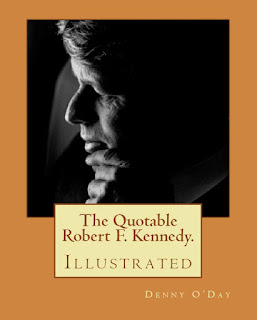GOOD WORDS TO HAVE
Noblesse
oblige: The obligation of
honorable, generous, and responsible behavior associated with high rank or
birth. In French, noblesse oblige means
literally "nobility obligates." French speakers transformed the
phrase into a noun, which English speakers picked up in the 19th century. Then,
as now, noblesse oblige referred to the unwritten obligation of people from a noble
ancestry to act honorably and generously to others. Later, by extension, it
also came to refer to the obligation of anyone who is in a better position than
others—due, for example, to high office or celebrity—to act respectably and
responsibly toward others.
“The struggle of life is one of
our greatest blessings.”Helen Keller
Scrambled
eggs and whiskey
Hayden Carruth
Scrambled eggs and whiskey
in the false-dawn light. Chicago,
a sweet town, bleak, God knows,
but sweet. Sometimes. And
weren’t we fine tonight?
When Hank set up that limping
treble roll behind me
my horn just growled and I
thought my heart would burst.
And Brad M. pressing with the
soft stick, and Joe-Anne
singing low. Here we are now
in the White Tower, leaning
on one another, too tired
to go home. But don’t say a word,
don’t tell a soul, they wouldn’t
understand, they couldn’t, never
in a million years, how fine,
how magnificent we were
in that old club tonight.
“Scrambled Eggs
and Whiskey” from Scrambled Eggs and Whiskey: Poems, 1991-1995 by Hayden
Carruth, published by Copper Canyon Press in 1996. www.coppercanyonpress.org
“Yet bend not all the harm upon
yourself;
Make those that do offend you
suffer too.”
Antonio
(Much Ado About Nothing, Act V scene ii)
“Your pain is the breaking of
the shell that encloses your understanding… And could you keep your heart in
wonder at the daily miracles of your life, your pain would not seem less
wondrous than your joy” Kahlil Gibran
“And
silence, like darkness, can be kind; it, too, is a language.” Hanif Kureishi, Intimacy and Midnight All
Day: A Novel and Stories
What do we mean by
"success" anyway?
My friend and
colleague Ryan Coelho says the word “success” is like the word "God."
If you ask 100 people what it means, every one of them will have a different
answer. He’s right.
On one level, we
understand that real success is about happiness. We know this. We’re not
shallow and superficial. And yet…
And yet most of us
(ahem, even those of us who help people get happy for a living) easily confuse
success for happiness -- at least until we wise up.
Look up the word
“success” and you’ll find a definition like, “the attainment of wealth,
position, honors or the like,” and synonyms like “accomplishment,"
“prosperity” and “fame." I have nothing against the word success or even
its traditional definition. It’s just a word, after all. But let’s call it what
it is. It’s a benchmark for performance and attainment -- a measuring stick.
Tangible metrics
are important and have their place, particularly in the business world. But if
you’re looking for personal fulfillment, it’s not likely that traditional
measures of success are going to get you there.
As a society, we've
come to believe that success -- stuff and status -- is the Yellow Brick Road.
Follow it, and we'll most certainly arrive at the Emerald City. While there's
nothing inherently wrong with wanting stuff, status, wealth or acclaim, it’s a
mistake to assume that they pave the way to happiness and fulfillment.
"Success"
is thrown around so frequently and in such varied contexts that we've forgotten
what it really means. It's vague, all encompassing, a catch-all. Success
dangles in front of our eyes the things we think will make us happy -- status
and stuff.
But we don’t
actually want all that. What we want is the way we think the stuff and status
is going to make us feel. Big difference. Success, when you boil it down, seems
to be about what we think will make us happy. It’s a lure, shiny and seductive
-- but there’s a hook: You can do everything right in the pursuit of attaining
traditional success, but happiness and personal fulfillment are not guaranteed.
Personally, at the
height of my “success,” I was pretty miserable. I’m not saying there’s an
inverse relationship between success and happiness, just that there’s not
necessarily a positive one. They're two different things.
A popular formula
for success and happiness that's guaranteed to fail is the following: When I
have (insert measure of success here) I'll be happy. It will fail because one
doesn’t necessarily lead to the other.
How you personally
define success and how you personally define happiness is entirely up to you.
But recognize the difference.
Wishing you
happiness -- and success.

“Our
job is to love others without stopping to inquire whether or not they are
worthy.” Thomas Merton
“The first draft is just you
telling yourself the story.” Terry
Pratchett
























































